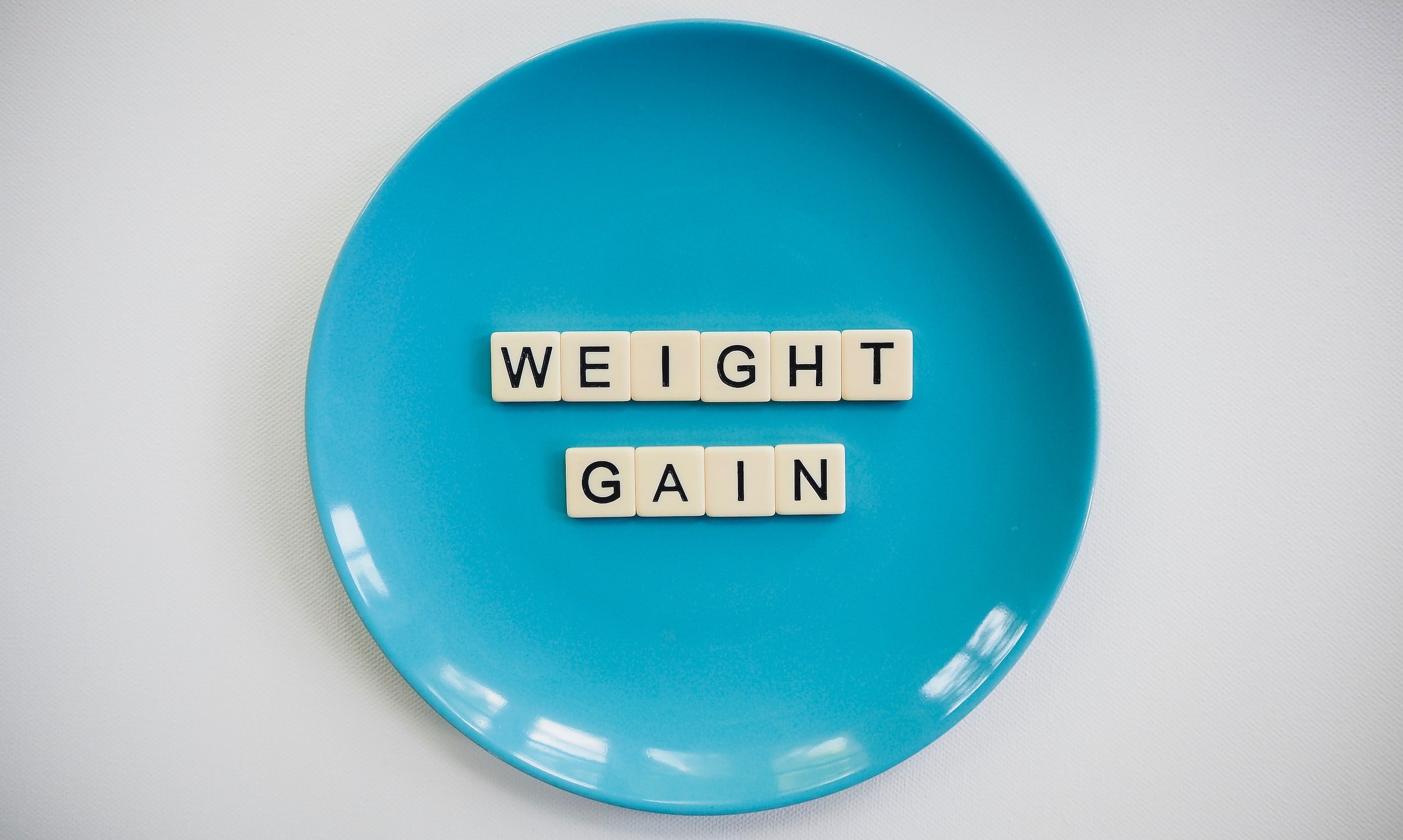How many times have you started a diet, made progress, got comfortable with the new changes to your physique, and before you know it, the weight slowly starts to creep back on?
The oh, so frustrating cycle of weight loss! What the heck! Why does this happen?
Let’s begin by breaking down how fat and weight loss occur:
-
In order to achieve fat/weight loss, you must be in a consistent calorie deficit: eating fewer calories than you are burning in a day.
The same goes for maintaining and gaining weight:
-
When you eat at or around the same number of calories you burn in a day, your weight is typically maintained.
-
When you eat more calories than you are burning in a day, your weight likely increases.
While other lifestyle factors like sleep, stress and activity levels will have some impact on this as well, losing, maintaining and gaining fat/weight is a proven science -we’re talking straight facts – that comes down to what you’re eating and how much.
If you’re currently dealing with the frustrations of gaining back fat or weight you previously lost, here are 7 reasons why PLUS immediate action steps you can start today to put an end to the weight/fat loss cycle once and for all!
7 Reasons You Are Regaining Weight
#1. DIETING!
You hear the RF Coaches and I preach this all the time: DIETS DO NOT WORK.
Diets with an expiration date, diets removing entire food groups (umm, hello, carbs!) or diets forcing you to eat an extremely low number of calories are not meant to provide long-lasting results. Instead, these are quick fixes to help you lose scale weight for the short term.
Fact: diets are NOT sustainable. Being in a severe calorie deficit for an extended period of time will absolutely take its toll on your body – here’s how:
-
Low energy + fatigue: If your body doesn’t get enough calories to keep up with your daily activity levels, you become fatigued and your energy levels tank.
-
Ineffective workouts: Think you can deal with feeling a little tired? Think again! If you’re working to lose weight or fat, you want/need to be exercising BUT, without energy, your once seamless workouts will soon be extremely difficult to complete.
-
Brain fog + loss of focus: This is especially common with elimination diets removing carbohydrates, which your brain depends on and needs to properly function and keep you focused. This means your job/productivity/daily output to perform everyday tasks become harder to complete.
-
Irritability + disrupted sleep: Hangry? Extra moody? Waking up at all hours of the night? Your body isn’t getting enough proper nutrients and trying to let you know.
-
Binging: after your diet is over, you may experience a surge in hunger levels which in turn leads to overeating and regaining weight. This is a common with any restrictive diet conditioning you to think of food as “good” or “bad”. Cutting out entire food groups (most commonly carbs) only causes the craving for that food to come back with a vengeance.
#2. BEING OVERLY RESTRICTIVE
Overly restricting calories may lead to quick weight loss but, it is not maintainable for longer than a short period of time and can be harmful to your health. Health struggles such as nutrient deficiencies, weakened bones, lowered immunity and reduced fertility are risks and side effects of chronically undereating. Just like dieting, binging/overeating is a common by-product of being overly restrictive which can contribute to unhealthy relationships with food and weight (re)gain.
#3. EATING MORE THAN YOUR BODY NEEDS
Your daily calorie needs are determined by many factors; one being your current body composition: weight, muscle mass, body fat mass, and other items such as water content and tissue. Larger bodies typically need more calories to sustain and maintain where they are at the time.
However, as you lose weight and reduce your body size, you will need to consume fewer calories based on your new body composition (weight, muscle mass, fat mass) and thus, will require fewer calories to sustain your current weight and daily activities. However, if you continue eating the same number of calories as you did at your starting weight, you are eating more calories than needed to maintain your new body composition.
#4. YOUR HUNGER-HORMONES ARE OUTTA WHACK
You have several hormones controlling and managing your hunger and appetite but the two with the greatest impact are leptin and ghrelin.
-
Leptin is responsible for sending fullness signals to your brain and your body responds by letting you know it’s satisfied/full and it’s time to stop eating. However, when on a restrictive diet, your leptin levels drop, and your brain does not receive as strong of a signal to stop eating or as often. This leaves you feeling hungrier and more susceptible to eating more calories than you need.
-
Ghrelin is an appetite-inducing hormone. When ghrelin levels are high, cravings and desires for sweets kick in. High or chronic levels of stress will cause ghrelin to rise. Being in a caloric deficit for too long (crash diet!) will cause stress levels to rise. See the connection here?
#5. YOU GET COMFORTABLE
You start the process of losing weight/fat and your motivation is sky-high! You are energetic, pumped about how you’re going to look and feel and can’t wait to hit your goal!
This is known as the honeymoon phase and if you are new to weight/fat loss, the rate of loss happens more quickly in the beginning stages. Understandably, seeing those immediate changes keeps you motivated and on track. However, this initial rate will slow down, and it’s normal to experience plateaus as well as stalled progress. While this is all part of the process, slowed progress and plateaus decrease motivation and the likelihood of seeing more results.
At this point, you become comfortable while slowly but surely reverting back to old habits. You convince yourself it’s not working, are too impatient to keep going or, look for a quick fix /other solutions because nothing is changing.
Remember: the process of losing weight or fat takes a long time and requires constant, CONSISTENT effort. Oftentimes, weight maintenance proves more difficult than weight loss.
#6. YOU CAN’T MAINTAIN NEW WEIGHT
Although you may have had a goal weight in mind (and achieved said goal), this weight may not be sustainable for your body. Everyone has what is known as “set point weight”: the weight your body feels healthy and is sustainable for you.
Even though you may have a goal weight of say 130 pounds, this does not mean your body can comfortably (or safely) remain at this weight. This is where setting goals outside of scale weight come into play. Instead of limiting your progress to what the scale says, add in other methods to track and assess your progress such as overall body fat, muscle mass, sleep quality, energy levels, and how your clothes fit.
#7. YOU FIXATED ON A SPECIFIC EVENT
How many times have you set out to lose weight for a specific event? Maybe it was losing 20 pounds for your wedding, dropping inches off your waist for a high school reunion, aiming to get back into a favorite dress or suit, or toning up for that beach vacation.
While this is not necessarily a bad thing, the challenge comes when it is your ONLY motivation. In these examples, weight is quickly regained after the event ends. Without thinking or planning how to maintain your new results, you are more likely to revert back to old eating habits as the scale creeps back up.
HERE’S WHAT TO DO INSTEAD
First thing’s first: eating well-balanced meals containing real, nutrient-dense foods in the appropriate portion sizes for your body’s needs and lifestyle ensures safe, effective and sustainable weight/fat loss.
How do you know what’s appropriate for you / your goals?
How do you know if you are eating/not eating enough?
How do you stay motivated and committed long enough to see results?
How do you avoid the quick fix leading you right back to where you started?
We’ve got the answer: working with a certified coach who knows and understands not just how to get you the results you want, but safely and effectively maintain those results!
And, even better news: that is exactly what I do as a certified Nutrition Coach with Results Fitness!!
Together, you and I work as a team and based on your goals and lifestyle, I ensure you get to where you want to be by creating a personalized nutrition plan where you are eating the right types of foods and getting the appropriate calories for your body composition needs and desired results/ goals. Most importantly, working together eliminates all the guess work, ends the dieting/weight loss and weight regain cycle, and guarantees YOU are eating a well-balanced diet rich in vitamins and nutrients.
Remember, working toward any health/fitness/nutrition goal takes time and strategy. If you don’t know what to do, to achieve or maintain results or, lack the motivation or accountability to do it, then it is definitely time we together and you get to where you want to be and the very best results!
Registration for Nutrition Coaching with me opens next week, and I only have space for 15! Be on the lookout for more details.
To learn more about our Nutrition Coaching & Accountability Program, click the LEARN MORE button below:

Stay Fueled

